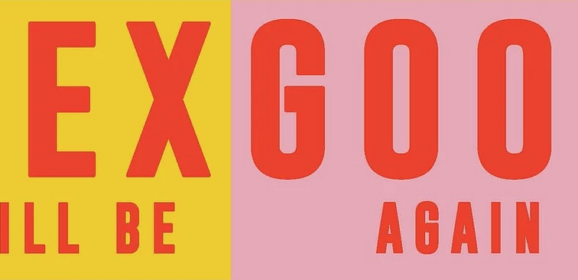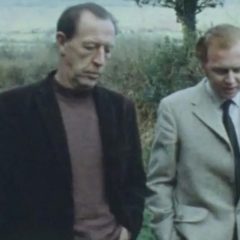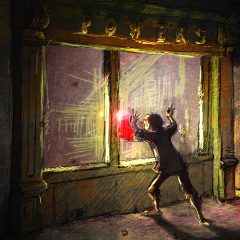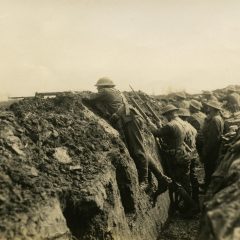Organic Systems: Session 1 – report
Organic Systems: Science Fiction & Ecology Today Session 1: SF & Critical Ecologies (Goldsmiths): 2nd May 2019 Organic Systems is a series of four workshops on Science Fiction and Ecology, aimed primarily at postgraduate research students and supported by CHASE, the Consortium for the Humanities and the Arts in South-East England. The series is a collaboration between Birkbeck and Goldsmiths, two colleges of the University of London, and specifically between the Centre for Contemporary Literature (Birkbeck) and the Critical Ecologies research strand (Goldsmiths). Each workshop has the following aims: To provide beneficial research expertise from guest speakers in designated training sessions. To hold round-table sessions in which guest speakers with strong research interests and expertise will present and discuss ideas – with contributions also welcome from the registered participants. To encourage meeting and networking among scholars in related areas, leading to the development of this research area. The first of the four workshops was held at Goldsmiths on Thursday 2nd May 2019. We began by reflecting in general terms on the rationale of the series and the connections between SF and ecology. We noted the still emerging interest in SF as critical field – in literary studies, film, media, culture, visual art, and so on. Locally, an important agent in this has been the London Science Fiction Research Community (LSFRC), a group primarily based at Birkbeck but involving members from elsewhere. It was LSFRC that first used the title Organic Systems, applied to a series of reading groups that culminated in a symposium in 2017. We thus borrow our title with due respect to them. We can also note an increasing role for SF as a way of thinking about other fields – such as economics, sociology, media, urbanism, or – as we want to explore – ecology. A good example of this crossover is Economic Science Fictions (2018), edited by William Davies and published by the Goldsmiths Press in 2018. Such work suggests that SF may currently be an interdisciplinary space where different social concerns can meet in fantastical and speculative form. Meanwhile, ecology is more insistent in the media and public consciousness than it has been some time. Indeed the last month or so before our first session featured the dramatic protests staged by the group Extinction Rebellion, and the intervention of Swedish school striker Greta Thunberg into UK politics, among other ongoing events. It is sometimes said that among all cultural and artistic forms, science fiction is unusually well placed to address such concerns: because of its ability to extrapolate and estrange, and because it might be better able than other narrative forms to match the...
Nocturnes
The Centre for Contemporary Literature is glad to announce that a new MA student-led reading group called Nocturnes is to start this January. It will be held on four dates (listed below) during Spring term 2019. Nocturnes will be hosted by Orla Cubitt, a second-year, part-time student on the MA Contemporary Literature and Culture, and Azad Ashim who is a first year, part-time student on the MA Creative and Critical Writing. The theme broadly connecting the selected texts is Contemporary Traumas, and covers issues including isolation, war, race and loss. This group is open to MA students across the Arts and Humanities programmes so will benefit from a broad range of student voices beyond our individual seminar groups. We think this will be a really good opportunity to meet students from other courses and to share ideas and learning. Please find the dates and texts listed below. All are to be held on Mondays at 7pm-8pm and with only two meetings either side of reading week, has been mindful of existing course loads. Mon 21st Jan: Bluets by Maggie Nelson Mon 4th Feb: The Corpse Exhibition by Hassan Blassim Mon 25th Feb: Exit West by Moshin Hamid Mon 11th March: A Little Dust on the Eyes by Minoli Salgado Week One on Monday 21st Jan will be held in Room 218, 43 Gordon Square. Locations for the following dates are TBC. For a PDF of Week Two's short story 'The Corpse Exhibition', please contact the organizers at: orla.cubitt@yahoo.co.uk. We hope to see you there! Best wishes, Orla and Azad. Image by Rory MacLeod, used under a CC BY 2.0...
Landscapes of Culture
by Colm McAuliffe Perhaps everybody does love Raymond (Williams), cultural theorist, border-crossing Welshman, television critic, elegant pipe smoker. A special event during Birkbeck's Arts Week 2018, Landscapes of Culture: Raymond Williams Thirty Years On, depicted Williams across three separate television landscapes traversing 1970, 1979 and 1988, through the Welsh borders of his home, the class upheaval of Cambridge where he taught, and the country house of Tatton Hall, to its natural finale: a strangely lit television studio where his legacy was discussed by an ideologically unusual array of politicians, academics and writers. These three documentaries – rarely seen since their original terrestrial broadcasts – formed part of the London-wide archive television season Radical Broadcasts: Theory On TV, which I have curated with Dr Matthew Harle, an Associate Research Fellow of Birkbeck’s School of Arts. Our intention with this season was not simply to provide a series of snug, nostalgic broadcasts of complex ideas on vintage television but to open up questions around the role of public intellectuals and public service broadcasting: why did the commissioners at the BBC deem it important to give televisual space to such complex interlocutors of theory and criticism? And what could it actually mean to consume television during this period when your viewing options could be limited to a documentary on the meaning of culture in society or Match of the Day? Landscapes of Culture was the final screening in our inaugural run of Radical Broadcasts screenings. Our decision to host this at Birkbeck Arts Week was crucial – we were conscious of the enthusiasm for his work across the Department of English and Humanities (and beyond), verified by the sell-out nature of the screening. However, selling-out is a charge one could never level at Williams. His laconic and uncompromising mannerisms, often embellished by a series of astonishingly beige, to the point of almost anti-colour, turtlenecks, made Williams a reassuring and compelling television presence. In Border Country (1970), we witness Williams debating and walking these landscapes of culture with a pre-fame Dennis Potter acting as the effervescent postulant, with Williams the avuncular cultural confidant. We later catch Williams in a domestic setting, briefly setting down to type at his rather insular desk before stepping away to awkwardly recline and face the camera in his leather swivel chair, a strangely modish item amongst his sparse living room; indeed, one could never question Williams’ commitment to both aesthetic and domestic realism. The Country and the City (1979), helmed by the acclaimed television director Mike Dibb (who worked wonders on John Berger’s Ways of Seeing BBC series earlier in the decade), was a more stylish and dramatic depiction of...
Gaelic Hardship
Certainly, I suffered Gaelic hardship throughout my life – distress, need, ill-treatment, adversity, calamity, foul play, misery, famine and ill-luck. As part of Birkbeck's Arts Week 2018, the Centre for Contemporary Literature supported an event that completed a trilogy of annual workshops on the brilliant first three novels by the Irish writer Flann O'Brien. Gaelic Hardship explored his third novel An Béal Bocht, written in Irish in 1941 and published under the name Myles na gCopaleen – which was the pen-name that Brian O'Nolan, the creator of 'Flann O'Brien', had adopted as a newspaper columnist. O'Nolan (1911-1966) refused to permit an English translation of the novel during his lifetime, just as he refused to countenance a second attempt to publish his rejected manuscript Third Policeman (written in 1940 and the subject of last year's workshop). Yet just as that novel was published a year after his death, so too in 1973 an English translation of An Béal Bocht appeared, as The Hard Life, translated by Patrick C. Power. It is in this form that this slim volume has become known to the largest number of readers, though there are still calls for a new translation and suggestions that Power's version omits important aspects of the original. Given the linguistic complexities involved, organizers Joseph Brooker and Tobias Harris (Birkbeck) this time enlisted the expertise of Eoin Byrne, who is working at the University of Galway on a project about bilingual writers including Samuel Beckett as well as Brian O'Nolan. After our introductions to the area and to O'Nolan's career trajectory, Eoin offered an incisive account of key issues around this novel, including the state of Irish-language publishing in the early 1940s and the 'Gaeligores' or Irish-language enthusiasts satirized in the novel. With members of the audience joining in discussion, the workshop was then enriched by readings of particular passages: Hugh Wilde recited an early passage where the English-speaking schoolmaster beats the protagonist's Irish name out of him, and N.J. Harris read the close of the novel, where poignancy seemed to take over from comedy. In the meantime we also looked at Myles na gCopaleen's satiric portrayal of a Gaelic festival at which numerous local Gaels die of rain, starvation, drink or exhaustion from excess of Gaelic dancing; Eoin read the passage aloud in Irish. An Béal Bocht / The Poor Mouth has perhaps been overshadowed by its brilliant precursors At Swim-Two-Birds and The Third Policeman, but this workshop placed it centre stage, reminding us of the ferocity of its irony and the sense that – as Eoin finally put it, deliberately echoing Richard Ellmann's words about James Joyce – we are still learning to be its contemporaries. A report on the event, by audience member, Charlotte Deadman, has...
Comparing the Contemporary: The Carnival of War
by Valentina Salvatierra The new ‘Comparing the Contemporary’ group is organised by Valentina Salvatierra (MA Contemporary Literature and Culture) and Carmela Morgillo (MA Modern and Contemporary Literature). In its first session (2 February), the group considered the way in which modern warfare is communicated in literary texts from different countries and decades. Marinetti’s ‘Futurist Manifesto’ (1909) glorifies war as a form of purification, whereas texts written after the first great war of the century shift the focus and present it as a traumatic experience. This applies to Erich Maria Remarque’s novel All Quiet on the Western Front (1929), Dalton Trumbo’s Johnny Got His Gun (1939), and Giuseppe Ungaretti’s poem, ‘Soldiers’ (1918). A key point we raised here is that at least in some sense the war experience is equally traumatic for all parties. ‘Soldiers’ reckons with the feeling of soldiers on the front, the knowledge they may not come back alive, and therefore grapples with an experience not unlike the one depicted by Remarque. Regarding Remarque’s novel, we also noted that in terms of both prose and message it could read like English war literature and also shared concerns with E.E. Cummings’s work, such as the degradation of human identity brought about by war. Rather than confirming the glorious nature of war, then, All Quiet on the Western Front conveys a sense of loss at the personal level that is parallelled in literatures of the ‘winning’ side – transmitting the idea that no side really wins in a war. Our discussion also considered the motivations for going to war, at the personal and national levels. On one hand, the soldiers who enlisted often did not understand the trauma they were likely to undergo or the wider political context – something that is seen in both Trumbo’s introduction to Johnny Got His Gun and in Remarque’s novel. The various nations offer varying justifications for war. We critiqued the idea contained in Henry Kissinger’s writings on US foreign policy that whereas Germany might go to war for power, the US goes to war in order to bring freedom to other countries. This notion is countered by the concept of soft power: whilst the US might not be after the hard power of conquered territories, perhaps it is seeking soft power as expressed in political and cultural influence. Crucially, soft power can be harder to combat because it is less evident, and finds expression for instance in media portrayals rather than in military power. Among other things, media can perpetuate the idea of American exceptionalism, its ‘special mission’ in the global order, and use it to justify war. Meanwhile, Italy had very different...
Comparing the Contemporary
by Valentina Salvatierra and Carmela Morgillo Wonderful universes lie unexplored at the very doorstep of our libraries, stories and people and histories often given for granted and never fully investigated. Voices from beyond the Channel and beyond the Ocean and beyond the West that have remained unheard. Voices that the sessions of ‘Comparing the Contemporary’ wish to discuss through a series of meetings aimed at travelling the literary world, bringing together the experience – and expertise – of the diverse Birkbeck student body. Intended as a platform for discussion rather than a formal seminar, ‘Comparing the Contemporary’ is organised by Valentina Salvatierra (MA Contemporary Literature and Culture) and Carmela Morgillo (MA Modern and Contemporary Literature), two students whose international background has motivated them to create something that would diverge from an often Anglo-centric focus. Underlying the group is the belief that our learning can be increased by becoming aware of the selectivity that determines the texts we read as scholars, and opening up to texts that can showcase both the distinctiveness and the possibility for communication between literary traditions. We want to deliberately seek out moments of difference as well as overlap, in the spirit of comparative criticism as described by Reynolds, Omri, and Morgans: Confronting radical difference is a decisive moment in critical and creative work alike. One may call it a border moment. It is open to possibilities, including rupture, rejection, indifference, conflict and communication or reconciliation. [1] Exploring different themes and genres, the sessions will usually compare two texts from similar periods and different countries to seek out literary ‘border moments’ between works. Running every two weeks, students will be allowed enough time to either familiarise themselves with a new text or research different points of analysis for something already known. Session Structure & Meetings So Far We are meeting every 2 weeks throughout the Spring term. Each meeting has a designated chair in charge of starting and guiding the group discussion. The chair contextualises the text, provides a short extract or clip (if relevant), and a brief critical discussion of the text(s). This should take between 10-20 minutes, and the rest of the session is dedicated to seminar-style discussion around the topic and text(s). The first two sessions' topics were around post-WW1 novels and speculative fictions of North and South America. Read on for more details of each. Starting on 2 February, the first session explored the themes of trauma and exceptionalism in two post-WW1 novels published in Germany and the U.S., each the ‘evil’ Other of the other and yet sharing the very same sense of national failure regardless of having won, or...









Recent Comments